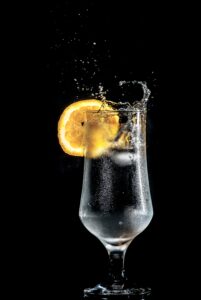CAN YOU DRINK SMARTLY AND HOW TO PREVENT ALCOHOL FROM DAMAGING YOUR BRAIN AND BODY?
Alcohol is often overlooked as a contributor to mental illness or discomfort.
Today, Doctors address this problem as alcohol disease because of the effects of excess alcohol on the body and brain, especially occurring at younger ages.
Drinking smart is especially important for brain health because, as the famous GRANT study revealed, alcohol disease (even if this label is not popular among drinkers) is one of the top contributors to developing Alzheimer’s disease.
HOW SMART DO YOU DRINK?
In other words, let’s find out where you personally fit in the spectrum of drinking.
- Do you drink to enjoy the taste and use alcohol, especially wine, to enjoy and enhance the taste-pleasure of certain foods? Do you drink only two to three evenings a week and you only pair alcohol with meals and never drink on an empty stomach? AND, the other evenings of the week, you don’t drink. And what is very important, please note this: you easily go without alcohol for a week!
If this is you, no problem, enjoy! I would advise you to go through this blog only to get tips on how to remain where you are.
- Do you drink because you need an -ant: a relaxant, antidepressant, or escapant? Does a drink after work help you relax, and do you know when to say when?
If this is you, read on carefully for how to keep from crossing the line. The line is between occasionally drinking just to relax and “must drink to relax”! because this becomes an alcohol disease.
HOW IS YOUR BRAIN ON ALCOHOL
Alcohol is one of the most harmful drugs you can buy without a prescription.
Yes! Alcohol is nowadays considered a drug and like all drugs, it has harmful side effects.
Please note that, like many drugs, the higher the dose and the longer it’s used, the greater the harmful effects.
IS ALCOHOL ADDICTING?
Yes! Alcohol is addictive. The more you drink, the more you want, and the more you have, the worse the effects.
Is alcohol high-calorie sugar?
Yes! And we know that excess sugar is what makes you fat. Double that for the sugar in alcohol. Did you know that the fermentation process that changes grapes into wine nearly doubles the calories in each gram of alcohol? And don’t think that alcohol is a diet drink, obviously, it is not!
In a previous blog, we said that we need to “avoid spikes”. It is one of the most important pieces of advice for brain health. The faster the carb spikes, the higher your blood sugar, and the higher your blood sugar, the sicker your brain and body gets.
Let’s line up:
- Sweetened beverages,
- White bread,
- Marshmallows,
- Doughnuts
- And alcohol.
Alcohol wins the Most Dangerous Carb Award. Alcohol, especially hard liquor, is more rapidly absorbed in the upper intestine than other carbs.
 HOW DOES ALCOHOL DAMAGE START IN THE BRAIN?
HOW DOES ALCOHOL DAMAGE START IN THE BRAIN?
The brain is one of the highest blood users of any organ. Alcohol mixes easily with both fat and water, meaning it quickly gets through the gut’s protective lining and into the blood. And which organ soaks up all this alcohol-saturated blood? The Brain!
Alcohol has a particular quirk that accounts for both its woozy effect, which some like, and its brain-damaging effects, which aren’t smart!
WHAT ABOUT THE SMART FAT THAT YOUR BRAIN NEEDS?
Brain cell membranes are mostly fat, and your brain is a “fat head”, alcohol’s fat-damaging effects particularly bother your brain! A study from the National Institute of Alcoholism and Alcohol Abuse at the National Institute of Health showed that excessive alcohol decreases the concentration of DHA (the smartest fat) in brain and eye tissue.
What will you take from this study? (done at one of the nation’s most trustworthy research centers) is that people who already have low dietary and blood levels of DHA – that is, those not eating an intentional brain diet – should definitively not drink alcohol.
ARE YOUR ANXIETY OR DEPRESSION HELPED WITH ALCOHOL?
In low amounts, alcohol, perhaps one drink, may calm anxiety and behave like a temporary tranquilizer, which is why some people start to drink to self-medicate.
Low doses, again maybe one drink, may lead to a feeling of pleasure and euphoria. In some ways, it also resembles opium because alcohol releases morphine-like compounds. Yet, alcohol abuse can worsen depression. Some people overdrink to escape from the debilitating feelings of depression but are unaware that alcohol can in the process deepen depression!
Other things to take into account. Alcohol effects are different at different doses and in different brains.
Neurobiologist, Steven Braun, author of the Buzz: “The Science and Lure of Alcohol and Caffeine”: “Alcohol is like a pharmacological hand grenade… In other words, unlike many prescribed drugs, alcohol harms many circuits of the brain”.
IS ALCOHOL A HEALTHY DRINK? NO!
You may have read that alcohol, at least in small doses, has healthful effects, such as lowering the odds of developing heart diseases. You need to know that not all the experts believe these conclusions. Lots of experts believe that it’s seafood, olive oil, and real food in the Mediterranean diet that makes it healthy, not wine. Experts say: “Yes, resveratrol, the healthy antioxidant in red grapes, is present in wine, but not enough for wine to be considered a “health drink” You’re better off just eating grapes!
The consensus among the most trusted health experts is: If you don’t already drink, there’s seldom a medical reason to start!
NEUROTRANSMITTERS AND ALCOHOL
Neurotransmitters are the molecular language of the brain. Years of heavy drinking can disturb the brain balance and, in a brain, out of biochemical balance, the neurotransmitters dial up too high (anxiety) or too low (depression). In some people, the brief initial “high” of drinking, which lasts 20 to 30 minutes and stems from a dopamine dial-up is shortly followed by a dopamine drop, where levels fall below where they were before the person started drinking. These drinks get undepressed – only to wind up later in a deeper depression than the one they were in before. As alcohol use deepens their depression over time, they tend to increase their drinking accordingly, which only serves to damage their brain and body more.
WHAT ABOUT THE HIGH-FUNCTIONING HEAVY DRINKERS?
Some people can get drunk at night and still perform their job well the day after. While this higher tolerance may seem helpful, it often backfires.
Being able to hold down a job and a relationship requires a person to continue to deny that they have a “disease”, which prevents them from getting help. By the time that person finally starts feeling alcohol’s effects on their job and family, brain and liver damage already may have occurred.
The paradox is that high-functioning people with this “disease” can have a higher risk of brain and body disease from alcohol simply because they do not seek help early enough.
OTHER WAYS ALCOHOL BOTHERS YOUR BRAIN
Alcohol puts you physically off balance by slowing your reaction time. How? Alcohol is a central nervous system depressant, which means it slows your reaction time! This is part of why driving under the influence of alcohol is so dangerous, your physical response is delayed.
Alcohol damages your ability to think rationally. Not only is your body out of balance when you drink too much but so is your brain. Alcohol not only damages neurotransmitter balance, but alcohol also damages your frontal cortex. The frontal cortex is the rational or “make wise choices” center of the brain. This allows the more impulsive parts of your brain to take over, prompting you to take more risks.
ALCOHOL FIRES UP THE BRAIN’S ADDICTION CENTER
Besides weakening the inhibition center, alcohol also dials up your addiction center, so it is harder to make healthier choices, especially in the areas of food and sex. You’re more likely to overeat and make decisions you’ll regret, including ones you may have difficulty completely erasing from your memory, a set-up for post-traumatic stress disorder (PTSD).
 ALCOHOL AFFECTS YOUR MEMORY
ALCOHOL AFFECTS YOUR MEMORY
When we drink, especially in excess, we tend to forget information we recently learned.
In studies comparing college students who abstained from alcohol with those who binged at a party after a few days of learning, the drinkers were more likely to forget what they learned – they forgot up to half as much as the smart students who abstained.
The extreme version of this effect is memory blackout. Because of these blackouts, people with alcohol disease often have little memory of the trauma drinking causes themselves and others. As a result, they can’t learn from their mistakes nor vow not to repeat them, instead feeling themselves into thinking they don’t have a problem!
A SOUND MIND AND A SOUND BODY
For sure not with too much alcohol! Why? Because of connections between the brain and all vital organs of the body that are damaged by drinker’s unhealthy habits!
let’s name a few:
- Boose bell. Belly fat = inflammation caused by an excess accumulation of sticky stuff.
- Lousy Liver. The brain is richly vascular, if lots of alcohol gets into the blood, a lot gets into the brain. The not-so-lovely result is cirrhosis (scarred and dead liver tissue) and fatty liver disease. Without your liver, you don’t live very long.
- Painful guts. Unlike many foreign chemicals, alcohol molecules resist the acid attack, and their biochemical ability to dissolve in both water and fat allows them to penetrate the mucus shield. As a result, regular drinkers usually suffer from gastroesophageal reflux disease. Alcohol also decreases the secretion of pancreatic digestive enzymes, leading to indigestion.
- Sleepless on alcohol. Alcohol is a sleep disruptor. Drinkers must pee more at night which can lead to dehydration and sometimes even low blood pressure. Alcohol steals REM sleep and as you learned in previous blogs, this dream sleep is key to our emotional well-being.
In the next blog, we will see if overdrinking is worth it, and we will tackle the seven rules of smart drinking recommended by doctors.
The good news is that specific Neurofeedback sessions will help you to easily overcome your addiction if it is already in place or if you fear being close to that!
Drink smart and ENJOY your life, family, and friends!
The InnerOptimal team!


